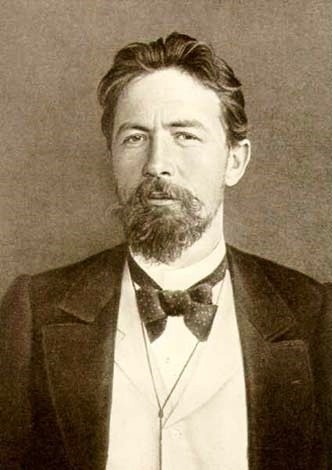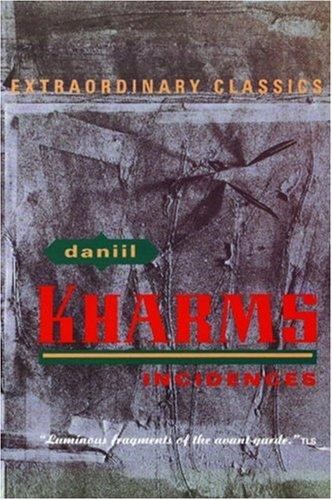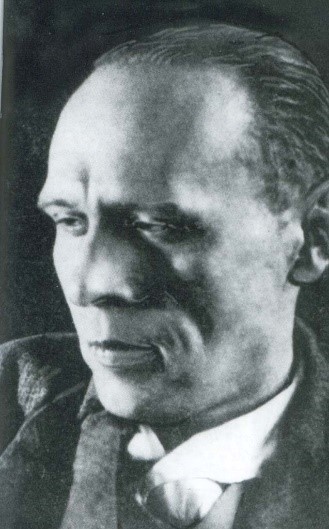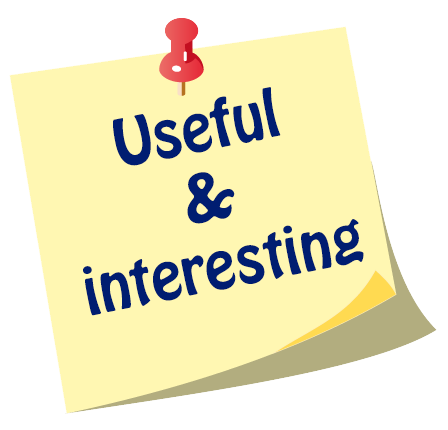
This project promotes open access materials and has been funded with support from the European Commission - Erasmus+ program. These materials reflect the views only of the author, and the Commission cannot be held responsible for any use which may be made of the information contained therein.
[Project Number: 2016-1-HR01-KA201-022159]
![]()
Book title
Love and other stories
Author
Anton Chekhov

Bibliographic information
The University of Adelaide Library, 2014
Links (adaptations, reviews, full texts etc.)
http://www.polyglut.net/docs/fatthin.pdf https://www.youtube.com/watch?v=Ah097eYgjO8
Theme
Social differences, using other people, pursuing a career in life
Short summary
Old friends meet together after some time and when one realizes the other one has reached a high position in his life he tries to flatter him
Why is the story appropriate for the targeted groups of RSP readers?
It is simple, it reflects readers' interests, it reflects social themes, social diversities
What are the distinguished readers interests reflected by this book/story?
-
Why is this story motivational for the pupils?
The story deals with themes teenagers are interested in like pursuing a career in life, earning money, getting high in society and also peoples' relationships. Follows the national curriculum - interpersonal relationships, finding a job.
Is there a historical, political, multi/inter cultural, migrant or similar context recognized in this book/story?
We can find there a political context - climbing up the social ladder, helping friends, turning back on them etc.
Is there a principle of inclusion reflected in this book/story and does it promotes understanding of cultural diversities and heritage?
It deals with the importance of being accepted by society.
Title of Activity
The Redhead
Description of educational activity
Duration: 90 minutes
Pupils’ age: 15-19
Organization of the class of pupils: individual/pair work
The aim of the lesson: The aim of the lesson is to improve the reading literacy of the students. To be able to describe a character of a person and find possible reasons of ones’ behaviour. The students will recognize the importance of social apprehension and every single individuality within society.
Support materials:
- Text of the story
- The circle social diagram
- The drawing of a person
Activities:
- The students complete the circle social diagram and discuss them in pairs. They speak about the importance of every circle.
- Students in pairs discuss why, where, and how people meet new people. They write a short dialogue describing a first meeting of two people. The whole group discuss if it is possible to recognize the people who we can trust.
- The students are asked what it means for them when we say that somebody is ‘useful’.
- The students read the story and complete the drawing of a person according to the description of the main character.
- Each student introduces their image of the main character along with their personal feeling of the character.
- The whole group discuss a possible relationship between the author and the main character and the character’s personality and personal life.
- Afterwards each pair thinks of people from different social circles living lonely lives and the reasons of that. The ideas are then shared.
- The last topic to be discussed is wasting time. Everyone thinks of moments in their lives when they ‘waste time’ and why.
Evaluation and assessment method:
- Throughout the lesson, ensure that your students are backing up their choices with accurate supporting details.
- The teachers should encourage the students to express their opinions. Every idea is subjective, nothing is really correct or wrong.
- In order to evaluate and assess the effective impact, the activities should be subsequently completed by each student and each student should actively participate in the discussion.
Effect of the activity on RSP reading:
Finding that their comprehension is positively evaluated and their opinions discussed the students lose the previous resist towards reading and gain some confidence.
Connection to curriculum
Grade: 1 – 4 grade of secondary studies
Curriculum: The study of literature is focused on reading and comprehending literary texts of historical and cultural importance and relevancy either in the world or Czech literature. Students are taught to work with texts and information in different ways, to adopt the processes of analysis, synthesis, induction, deduction, generalization, abstraction, specification, comparison, organization, selection. The students should be able to interpret, summarize and evaluate the texts.
Knowledge:
- Describing a character
- Develop reading fluency
- Improve reading comprehension
- Organise information in a specific way
Skills:
- Deduction, generalization, abstraction, interpretation
- Use illustrations
- Compare and contrast
- Summarize
- Work effectively in groups, respecting others
Competences:
- Make connections between fiction and real life or personal experiences
- Be able to visualise material read
- Follow specific instructions and conventions
- Evaluate evidence
- Support and justify an opinion
Bibliographic reference to be used during the activity
Kharms Daniil
Incidences
Publisher: Serpent’s Tail
ISBN: 1852423064
Page count:
Year of issue: 1993

Digital resources
The full text can be found on http://danielcharms.com/charms/plays/play1.html and a video on https://www.youtube.com/watch?v=Sx21o6GRAfw.
Results
The expected outcomes of the lesson are:
- The students are able to work with their imagination.
- They are able to support their opinions with arguments.
- They are able to see the facts in context, speculate, interpret, and raise questions in response to different descriptions of the character.
Recommendations
Both the teaching method and the text can help in increasing students’ interest in reading. The character is a total loser and the students find it easy to feel for him. The teacher monitors the students to make sure they follow the activities and participate in the discussion.
Book title
Incidences / Blue notebook no. 2
Author
Daniil Kharms

Bibliographic information
Serpent´s Tail, London, 1993
Links (adaptations, reviews, full texts etc.)
· http://www.sevaj.dk/kharms/stories/noteb10.htm
· https://www.youtube.com/watch?v=Sx21o6GRAfw
Theme
Importance of a human being, expatriation from society
Short summary
A metaphorical story about a man who does not have any human organs and the question is if he really exists
Why is the story appropriate for the targeted groups of RSP readers?
It is short and simple, it reflects social themes, social diversities
What are the distinguished readers interests reflected by this book/story?
-
Why is this story motivational for the pupils?
It is very short, simple and original. It deals with a human's importance and position in society which are important themes for every teenager. Follows the national curriculum - interpersonal relationships.
Is there a historical, political, multi/inter cultural, migrant or similar context recognized in this book/story?
There is a strong social context which can be interpreted in many different ways, also from political, multicultural or migrant point of view.
Is there a principle of inclusion reflected in this book/story and does it promotes understanding of cultural diversities and heritage?
It deals with the importance of being accepted by society.
Title of Activity
Federigo’s Falcon
Description of educational activity
Duration: 90 minutes
Pupils’ age: 15-19
Organization of the class of pupils: individual/group work
The aim of the lesson: The aim of the lesson is to improve the reading literacy of the students. The students are able to say what is important in one’s life and appreciate other people and what they get from them. Another goal is to make the pupils think of how they can be useful for the others and that it is very important to help the others.
Support materials: The text of the story split in 5 parts.
Activities:
- What does it mean to be rich? What is possession?
- How many possessions do you own? Write down 5 things into each category: totally essential, important, not very important, absolutely useless, with sentimental value.
- If you had to live just with ten of your possessions, which of them would you choose? Why? Discuss your choice in groups.
- What are the most tragic loses in one’s life? Why?
- The students read Part 1. Why did he lose all his possessions? What kind of advice would you give him?
- The students read Part 2. What would you prepare to host her if you were in his shoes? Would you even host her? What do you think Federigo will do?
- The students read Part 3. His Falcon is the only thing that could save her son’s life. Do you think he should give it to her? Why? Why not?
- The students read Part 4. Which characteristics apply to the characters from the story Federigo, Monna Giovanna or her son? Explain your choice. You can use each adjective more times. loving, caring, nice, stupid, selfish, naive, clever, cunning
- Finish the story after her son’s death.
- The students read Part 5. They say love and health are the only things you cannot buy. Do you agree?
- How can people possibly lose their property? Whose fault is it?
- What are the most tragic loses in one’s life? Why?
Evaluation and assessment method:
- Throughout the lesson, ensure that your students are backing up their choices with accurate supporting details.
- Teacher's observations of students’ participation in group activities and discussions.
Effect of the activity on RSP reading:
Practices that support students´ imagination, choice, collaboration, and shared control of learning outcomes can be linked to self-expressed interest in reading and engaged reading behaviour.
Connection to curriculum
Grade: 1 – 4 grade of secondary studies
Curriculum: The study of literature is focused on reading and comprehending literary texts of historical and cultural importance and relevancy either in the world or Czech literature. Students are taught to work with texts and information in different ways, to adopt the processes of analysis, synthesis, induction, deduction, generalization, abstraction, specification, comparison, organization, selection. The students should be able to interpret, summarize and evaluate the texts.
Knowledge:
- Improve reading comprehension
- Organise information in a specific way
Skills:
- Make predictions, deductions
- Compare and contrast
- Summarize
- Work effectively in groups, respecting others
- Improve the social skills
Competences:
- Think in social context about life or personal experience of different people
- Financial literacy
- Awareness of what is important in one’s life
- Be able to visualise material read
- Follow specific instructions and conventions
- Support and justify an opinion
Bibliographic reference to be used during the activity
Boccaccio Giovanni
Publisher: https://americanliterature.com
Results
The expected outcomes of the lesson are:
- The students will be able to understand different life situations in social context.
- To be able to recognize what is important in one’s life.
- To offer observations, make connections, speculate, interpret, and raise questions in response to the story.
Recommendations
Both the teaching method and the text can help in increasing students’ interest in reading. This text promotes a relationship with possessions and other people at the same time. The teacher monitors the students so as to make sure they cooperate effectively.
Contact
X gimnazija ''Ivan Supek''
Ul. Vjekoslava Klaića 7
10000
Zagreb
E-mail: partners@handbook4rspreaders.org










